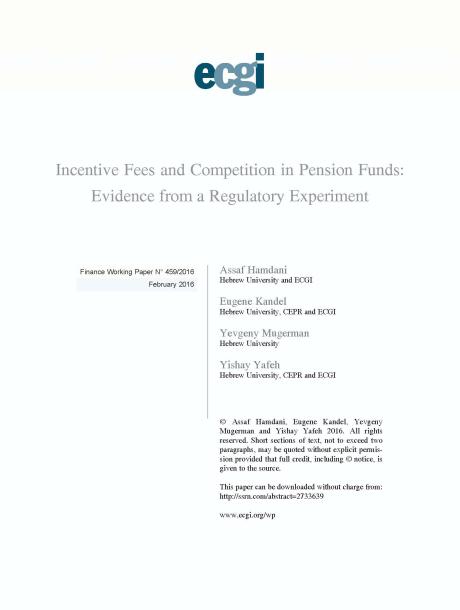
Incentive Fees and Competition in Pension Funds: Evidence from a Regulatory Experiment
Abstract
Concerned with excessive risk taking, regulators worldwide generally prohibit private
pension funds from charging performance-based fees. Instead, the premise underlying the regulation of private pension schemes (and other retail-oriented funds) is that competition among fund managers should provide them with the incentives to make investment decisions that would serve their clients? long-term interests. Using a regulatory experiment from Israel, we compare the effects of incentive fees and competition on the performance of retirement savings schemes. Taking advantage of a unique institutional setup, we compare three exogenously-given types of long-term savings schemes operated by the same management companies: (i) funds with performance-based fees, facing no competition; (ii) funds with AUM-based fees, facing low competitive pressure; and (iii) funds with AUM-based fees, operating in a highly competitive environment. We find that funds with performance-based fees exhibit somewhat higher risk (depending on the measure used) but significantly higher risk-adjusted returns. By contrast, we find no evidence that competitive pressure leads to improved performance. We conclude that incentives and competition are not perfect substitutes in the retirement savings industry. Our analysis also suggests that the pervasive regulatory restrictions on the use of performance-based fees in pension fund management may be costly for savers in the long-run and should be reconsidered.










